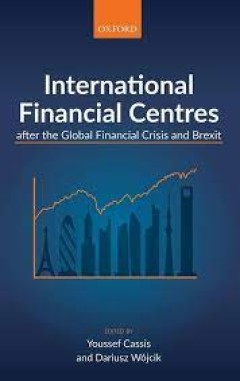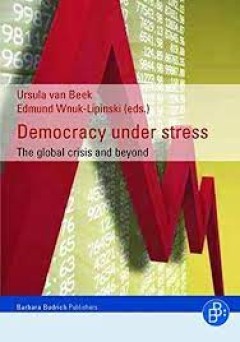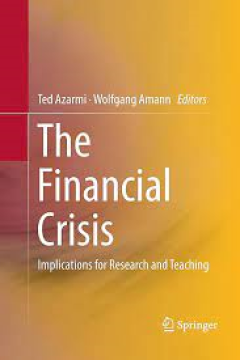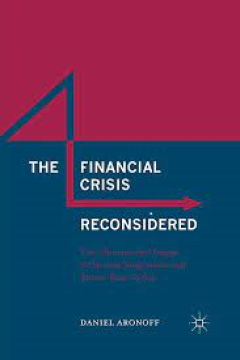Filter by

International Financial Centres after the Global Financial Crisis and Brexit
This book gathers leading economic historians, geographers, and social scientists to focus on the developments in key international financial centres following the 2008 Global Financial Crisis and to consider the likely effects of Brexit on these centres. Eleven centres in eight countries are taken into consideration: New York, London, Frankfurt, Paris, Zurich/Geneva, Hong Kong/Shanghai/Beijing…
- Edition
- -
- ISBN/ISSN
- 9780198817314
- Collation
- -
- Series Title
- -
- Call Number
- -

Democracy under stress The global crisis and beyond
This book focuses on the global financial crisis of 2008-2009 and its implications for democracy. Why and how did the crisis come about? Are there any instructive lessons to be drawn from comparisons with the Great Depression of the 1930s? What are the democratic response mechanisms to cope with serious crises? Do they work? Is China a new trend setter? Do values matter? Are global democratic r…
- Edition
- -
- ISBN/ISSN
- 9783866495807
- Collation
- -
- Series Title
- -
- Call Number
- -

The Financial Crisis
This book brings together a good mix of academics and practitioners for a discussion that focuses on how to change financial practice and the academic field of finance in order to understand the current financial crisis and deal with future turbulent financial times. The volume is based on contributions by prominent academics and practitioners from Europe, Asia and the USA. The book contains se…
- Edition
- -
- ISBN/ISSN
- 978-3319205878
- Collation
- 190 pages
- Series Title
- The Financial Crisis
- Call Number
- -

The Financial Crisis Reconsidered
Aronoff proposes a novel theory to account for the ultimate origins of secular stagnation and economic volatility. He shows how accumulation, which occurs when a person or country earns more than it ever plans to spend, generates both an excess of saving and a deficiency in demand. While savings provide the funds to promote booms, under-consumption ensures that these booms will turn bust and th…
- Edition
- -
- ISBN/ISSN
- 978-1349575473
- Collation
- 308 pages
- Series Title
- The Financial Crisis Reconsidered
- Call Number
- -
 Computer Science, Information & General Works
Computer Science, Information & General Works  Philosophy & Psychology
Philosophy & Psychology  Religion
Religion  Social Sciences
Social Sciences  Language
Language  Pure Science
Pure Science  Applied Sciences
Applied Sciences  Art & Recreation
Art & Recreation  Literature
Literature  History & Geography
History & Geography